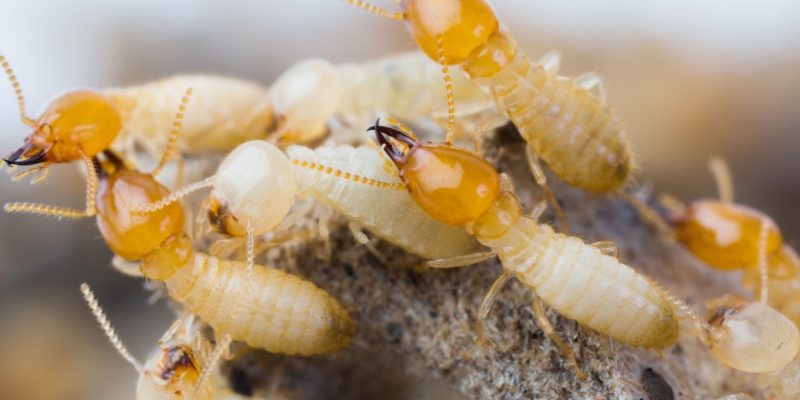Termites are a homeowner’s nightmare, silently causing structural damage and leaving hefty repair bills in their wake. In North Port, Florida, several termite species thrive due to the region’s warm, humid climate. Knowing how to identify common species, understand their behavior, and prevent their entry can help you protect your home. Here’s what you need to know about the most common termite species in the area and the steps you can take to keep them at bay.
1. Subterranean Termites
Identification: Subterranean termites are the most common and destructive species in Florida. They typically measure about 1/8 inch long and have a pale, creamy color. Their colonies are often found underground, connected to above-ground feeding sites through mud tubes.
Behavior: These termites rely on moisture-rich environments. They build mud tubes along foundation walls, pipes, or other structures to reach wood sources in your home. Subterranean termites can cause significant damage, tunneling through wooden support beams and flooring.
Prevention: Reduce moisture around your home by fixing leaks, ensuring proper drainage, and keeping gutters clean. Seal cracks in your foundation and consider installing a sand or gravel barrier between soil and wooden structures. Regular termite inspections can help catch infestations early.
2. Drywood Termites
Identification: Drywood termites are slightly larger than subterranean termites, typically 3/8 to 1/2 inch long. They are light brown or dark tan and do not require contact with soil to survive. Their colonies live entirely within the wood they consume.
Behavior: Unlike subterranean termites, drywood termites infest dry, sound wood. They create small, smooth exit holes where they push out their droppings. Their presence is often indicated by piles of tiny, wood-colored pellets near infested areas.
Prevention: Keep firewood and wooden debris away from your home’s exterior. Seal gaps around windows, doors, and eaves to prevent swarming termites from entering. Regularly inspect wooden furniture, trim, and framing for signs of infestation. Consider a professional inspection at least once a year, especially if you’ve had previous termite issues.
3. Formosan Termites
Identification: Formosan termites are a particularly aggressive subterranean species. They are similar in appearance to other subterranean termites but can form much larger colonies—often numbering in the millions. These termites can cause extensive damage in a shorter period than most other species.
Behavior: Formosan termites build large underground colonies and can attack a wide range of wooden structures. They produce mud tubes like subterranean termites and swarm primarily in the evening during the spring and summer.
Prevention: Because Formosan termites are notoriously difficult to control, preventive measures are essential. Keep mulch and landscaping elements at least a foot away from your home’s foundation. Seal cracks and openings, reduce moisture, and maintain regular inspections by a professional service experienced in dealing with this aggressive species.
General Prevention Tips
- Moisture Control: Termites of all types thrive in humid conditions. Keep your home’s interior and exterior as dry as possible. Repair leaks, ensure proper ventilation, and remove standing water sources.
- Wood-to-Soil Contact: Avoid direct contact between wood and soil. Use concrete or metal barriers between wooden structures and the ground.
- Regular Inspections: Termite damage can go unnoticed until it’s severe. Schedule annual termite inspections with a professional who can detect subtle signs of infestation.
- Early Intervention: If you suspect termites, contact a pest control expert immediately. The sooner you address the issue, the less damage your home will sustain.
Protecting your North Port home from termites begins with knowledge and prevention. By understanding the most common termite species in the area and taking proactive measures, you can reduce the risk of infestation and costly damage. When in doubt, turn to a trusted professional like F2 Exterminators for expert guidance and treatment options tailored to your home’s unique needs.
